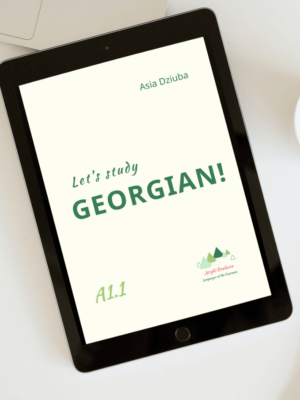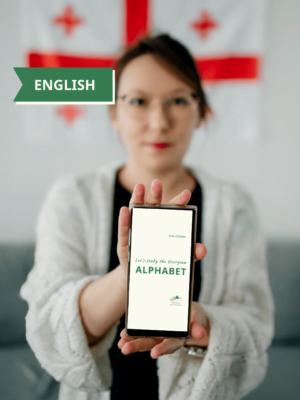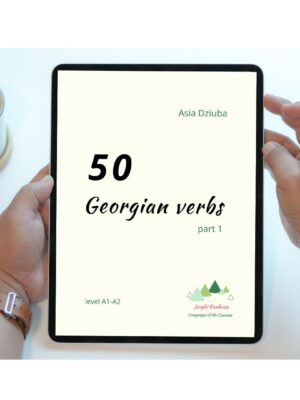Georgian pronouns with the Ergative, the second case in Georgian is what you will learn about Georgian grammar from this article. There is a moment in your study of Georgian language that you need to learn the cases and their forms in order to speak Georgian correctly.
This is why today we’ll cover a more advanced topic which is pronouns with the Ergative which in Georgian is მოთხრობითი ბრუნვა. This is a good topic to go with if you already know the basics of the Georgian language. If you are still to learn the basics of Georgian, use the resourses we mention below.
The Georgian pronouns with the Ergative – how to start?
Let’s maybe start with a short introduction. This is the next article in the series about Georgian cases. If you don’t know cases at all, then you may start with our introduction to the Georgian cases in this article.
If you know some cases but haven’t studied Ergative one, then this introduction to Ergative with nouns declination will be a good start for learning Georgian second case.
One of the most often situations when მოთხრობითი ბრუნვა is used, is in the past tense aorist and the optative forms. Then the subject should be in the Ergative form.
Today we’ll focus on how the personal, possessive and demonstrative pronouns decline so change with the second Georgian case. This is why the Georgian pronouns with the Ergative form will be our main focus.
How the personal pronouns change in the second Georgian case?
There are 6 personal pronouns in Georgian: მე, შენ, ის, ჩვენ, თქვენ, ისინი. These forms are in the dictionary entry form so also the first case, სახელობითი ბრუნვა. What happens in the Ergative form? Four of them look exactly the same. The only ones that change are ის which changes into მან and ისინი changing into მათ. Let’s look at the examples:
- ის სადილს ამზადებს. – He prepares a dinner.
- მან სადილი მოამზადა. – He prepared a dinner.
How to modify Georgian possesive pronouns in the Ergative?
The possessive pronouns are ‘your’, ‘their’, etc. In Georgian there are two situations possessive pronouns may be in a sentence. In one they are a part of a noun phrase, e.g. ‘Your older brother prepared a dinner.’. The second option is when they stand alone, without any noun, e.g.
- Whose brother prepared this dinner?
- Yours.
In both of these situations in Georgian language you will add Ergative –მა ending to the possessive pronoun. Therefore your and yours will be შენმა. The is just one topic left then in the lesson of the Georgian pronouns with the Ergative, so:
Do the demonstrative pronouns change in the second Georgian case?
The last group of pronouns we’ll focus on today these are the demonstrative ones, so ‘this’ and ‘that’. Similar to demonstrative pronouns in Georgian we can use these Georgian pronouns in Ergative both, together with a noun or separately. If used together, e.g. ‘this older brother’ the ეს (this) changes into ამ and ის (that) into იმ.
If these Georgian pronouns in Ergative are used separately, without a noun, they change into ეს – ამან and ის – იმან respectively. Now you know the needed information about the Georgian pronouns with the Ergative. So the question remains:
How to study the Georgian cases?
When you know the rule, one of the option is to create different sentences on our own, so to use as many forms as possible. You may also modify the sentences you have in texts, Georgian study books etc. so to use not only nouns in Ergative but also pronouns and Georgian adjectives. This is one of the ways how we teach you Georgian cases in our study books and Georgian online courses within our series ‘Let’s study Georgian’.
If you just start learning Georgian, first focus on the Georgian third case, Dative, instead of Ergative, because it is heavily used from the beginning. The second case is more used later on.



